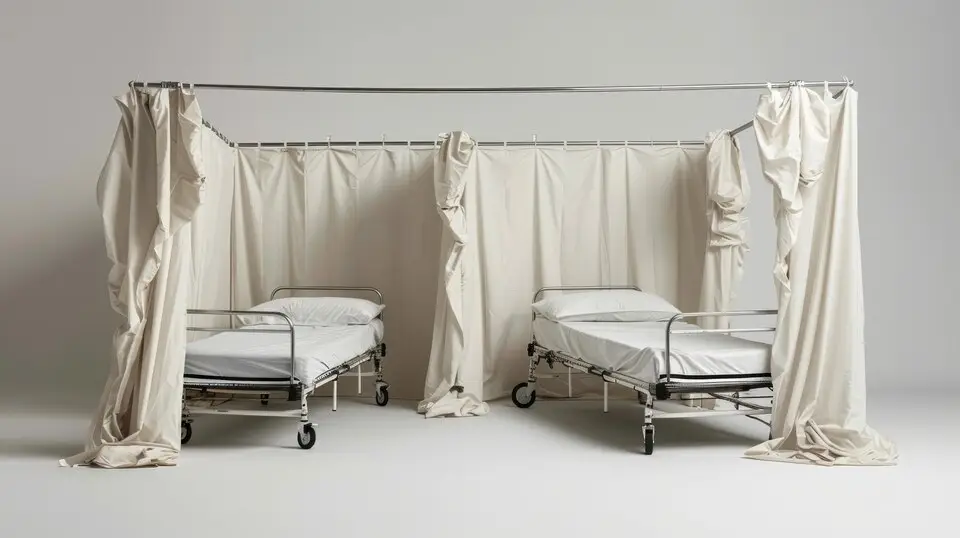Hospital Bed Rental: What Does Medicare Cover? Millions of people may need specialized medical equipment, including hospital beds when caring for themselves or loved ones at home. Medicare, the federal health insurance program, may help cover costs for hospital bed rentals in certain situations.
This article explains how Medicare covers hospital beds, which types of beds it covers, any conditions that apply, and the costs involved.
What Is a Hospital Bed?

A home care bed is medical equipment with extra functions that one can hardly get on a regular or hospital bed. These adjustable beds can raise or lower the head or feet and are essential for anyone with chronic health conditions, pain, or mobility issues.
Hospital beds also have other functions, such as side rails, pressure-reducing mattresses, and the ability to lift certain bed parts to address specific medical issues. People with arthritis, heart disease, spinal injuries , or chronic respiratory disease may need these beds.
Eligibility Requirements: Medicare covers hospital beds if they’re medically necessary and prescribed by a Medicare-enrolled doctor.
Read More: Do Magnalite Pots Cause Cancer? A Comprehensive Guide
How Medicare Covers Hospital Beds

Durable medical equipment (DME) , including hospital beds, is covered by Medicare Part B. Here are the conditions that must be met for coverage:
- Medical Necessity: Your physician must assess whether a hospital bed is medically necessary for the treatment or management of your medical condition.
- Doctor’s Order: You need a doctor’s prescription stating that a hospital bed will help you manage your illness.
- Ongoing Treatment: You must be under a doctor’s care and see them at least once every six months.
- Medicare Participation: Your doctor and equipment supplier must be enrolled in Medicare.
When these conditions are satisfied, Medicare pays for 80% of the approved cost of the hospital bed. All Medigap and most Medicare Advantage plans will cover the remaining 20% and/or offer additional benefits.
Cost Sharing: Medicare Part B pays 80% of approved costs, with the remaining 20% covered by Medigap or out-of-pocket.
Types of Hospital Beds Covered by Medicare

Medicare offsets the cost of a few hospital bed types, including
- Adjustable Beds: Beds that can raise or lower the head or feet.
- Semi-electric Beds: Beds with adjustable heads and feet but manual height adjusting.
- Bariatric Beds: Extra-wide beds that can hold patients weighing 350 to 600 pounds and beds that can hold 600 pounds or more.
- Mattress Pads: Medicare will also pay for pressure-relieving mattress pads, including lambswool, synthetic sheepskin, gel, and air pressure pads.
However, Medicare does not cover fully electric beds with adjustable heads, adjustable feet, and the whole shebang because that height adjustment is considered a convenience.
Read More: Eosinophilic Esophagitis Causes, Symptoms, and Treatment
What Medicare Doesn’t Cover

Though Medicare pays a large part of the hospital bed cost, certain features identified as non-essential will not be covered. Some of these are:
- Over-the-bed tables are convenience items that are not medically necessary, meaning they are not required for diagnosis or treatment.
- Extra features include high-end mattresses, unique bed frames, or decorative accents.
If the bed and accessories are to be covered, they must have all requirements specified by Medicare.
Types of Beds Covered: Adjustable, semi-electric, and bariatric beds are included, but fully electric beds are not covered.
Renting vs. Buying a Hospital Bed
Medicare provides for either a rental or a purchase of a hospital bed, based on the doctor’s order and the equipment supplier’s policies. If you use the bed for a shorter duration, renting may become more favorable. If the bed will be used for a long time, purchasing might be the economical solution.
- Renting: Between $200 and $500 a month for a hospital bed, depending on the type.
- Buying: Hospital bed prices can range from $500 to several thousand dollars, depending on the model and features.
How Much Does Medicare Cover?
Medicare Part B will pay 80 percent of the approved cost for a hospital bed. The other 20% is yours unless covered by a Medigap or Medicare Advantage plan.
Example: If your hospital bed costs $1,000, Medicare pays $800, and you pay $200. If you rent a bed for $300 a month, Medicare will cover $240, and you will cover $60.
Additional Coverage Options
- Medicare Advantage (Part C): These plans, provided by private insurance companies, must cover at least as many services as Original Medicare. Costs may vary depending on your plan because many Medicare Advantage plans offer additional benefits.
- Medigap (Supplemental Insurance): Medigap helps pay what Medicare does not pay, like the 20% coinsurance for a hospital bed.
Rental or Purchase Options: Depending on your needs and supplier policies, you can choose to rent or buy a bed.
What You Need to Know Before Renting or Buying a Bed
Here are the steps you should take before renting or buying a hospital bed:
- Check if your doctor is enrolled in Medicare: Enrollment is necessary for Medicare coverage.
- Confirm the bed is medically required: Your doctor’s order should explain the need for the bed based on your condition.
- Understand your costs: Look up your coverage through Medicare Part B or see if a Medigap or Medicare Advantage plan will cover the out-of-pocket expenses.
Conclusion
When a physician determines that a hospital bed is necessary, Medicare covers the cost substantially. For patients with a valid doctor’s prescription, Medicare Part B covers 80% of the cost of the bed, and additional coverage is available through a Medigap or Medicare Advantage plan.
It helps to ensure that the equipment you receive is Medicare-compliant, and it helps to consult with your medical professional to determine the best type of hospital bed for you.
Did you find this article helpful? Explore more on Dexans‘ blog for additional tips, expert insights, and much more!



1 Comment
Pingback: how long does a filling take? | dexans.com